An End of Two-Decade Attempt Transformation
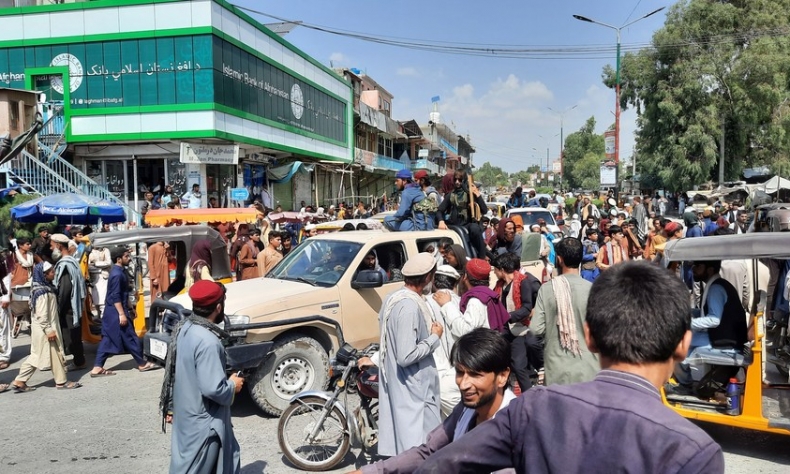
China hopes that the Afghan people will grasp the historic opportunity and take the nation’s destiny into their own hands.
The situation in Afghanistan is beyond anyone’s imagination. The Taliban made a lightening advance to dethrone the country’s Western-backed government on August 15, bringing an end to a two-decade campaign in which the U.S. and its allies had tried to transform Afghanistan.
The government security forces collapsed or fled, ahead of the planned withdrawal of the last American troops at the end of August. A state of fear and panic swept Kabul after the Taliban takeover became imminent. Thousands took to the streets in the capital city trying to get home or abroad, triggering a massive effort to airlift Western diplomats and national. UN Secretary General António Guterres called on the Security Council to use all tools at its disposal to suppress the global terrorist threat in Afghanistan and guarantee that basic human rights will be respected.
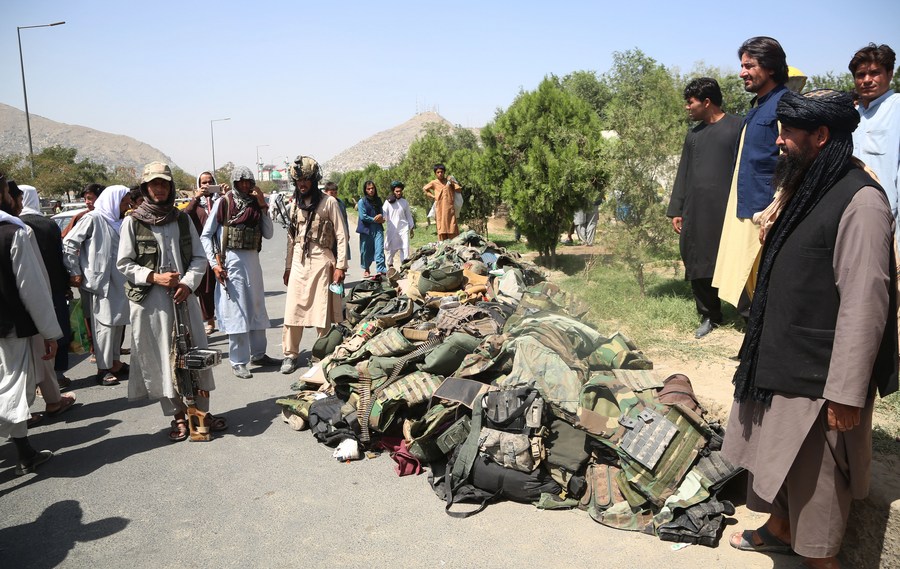
How it began
The surge began in April, when the U.S. and NATO announced they would end their military presence and bring the last of their troops home. U.S. President Joe Biden announced that American forces would finish the longest American military mission by August 31. He said, “We didn’t go to Afghanistan to build a country, and it is the Afghan people’s sole right and responsibility to decide their future and how they want to run their country.”
The U.S. started war against Afghanistan in October 2001 to hunt Al Qaeda leader Osama bin Laden, the culprit of the September 11 terrorist attacks on America. However today, terrorist forces in Afghanistan remain rampant and peace still hasn’t come. Who could have predicted or even imagined that after 20 years of war in Afghanistan, the Taliban would be more entrenched than ever in the country and gain international legitimacy, which was denied to the group when the U.S. decided to topple its regime for its refusal to hand over bin Laden?
The longest war in U.S. history has cost more than $2 trillion, seen 170,000 people die, including 2,400 U.S. troops.
The hasty withdrawal of the U.S. and NATO troops marks the failure of the U.S. policy toward Afghanistan. Facts have once again proved that it is difficult to gain a foothold in a country with a completely different history, culture and national conditions by mechanically copying foreign models. A regime cannot stand without the support of its people, and using military means to solve problems only causes more problems.
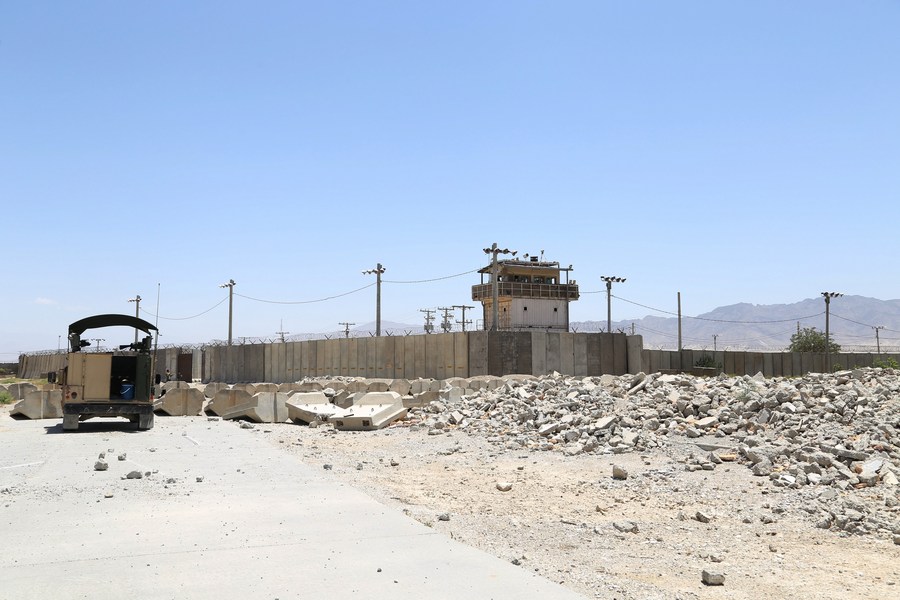
Possibilities ahead
The U.S. withdrawal from Afghanistan poses a great challenge to the neighboring countries. Among those affected are Iran, Tajikistan, Uzbekistan, Pakistan, India, Russia and China.
From the global perspective, all terrorist organizations and groups have been emboldened by the latest turn of events in Afghanistan, as they would likely conclude that persistence in fighting established governments in the name of Islam has been vindicated by the second precedent of the Taliban. The first one was in 1996 when they took rule over the country for the first time.
It is a tragedy that the war against terror has failed utterly in Afghanistan. With the Taliban’s return to power, and Al Qaeda still operating, there can be no guarantee that the two will not resume their cooperation and coordination, this time benefiting from 20 years of experience in resisting the mightiest military force on the planet.
After seizing Kabul, the Taliban said the war in Afghanistan is over and that they will hold talks aimed at forming an open, inclusive Islamic government and take responsible actions to protect the safety of Afghan citizens and foreign diplomatic missions. The world hopes these commitments will be honored.
Looking ahead, the Taliban is expected to have on its agenda how to succeed in controlling and expanding more internally, focusing on showing its seriousness in governance of the country and strengthening its relationship with neighboring countries. The worst scenario could be the outbreak of a civil war between the Taliban and its foes, and the resurrection of Al Qaeda.
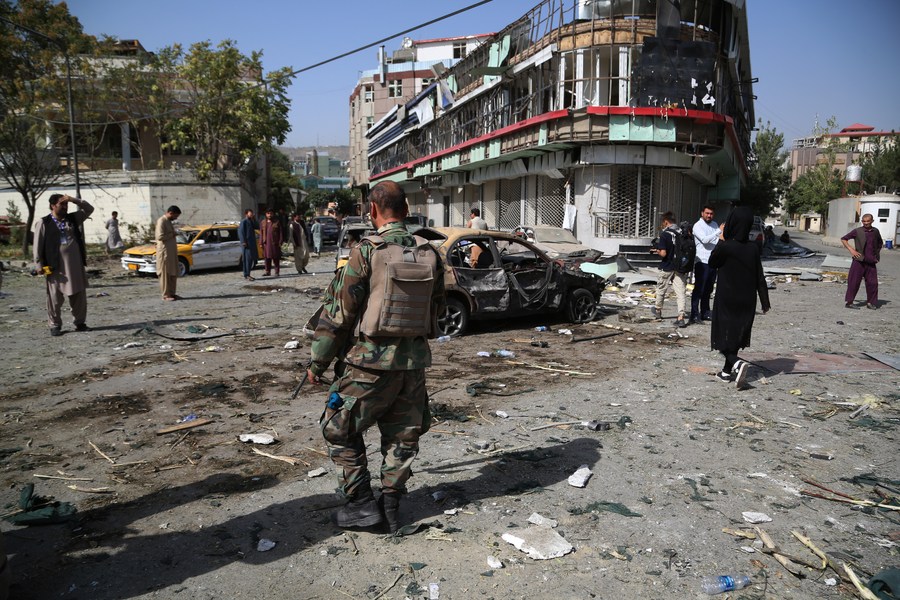
Wars in Afghanistan have been dragging on for over 40 years. Peace is the shared aspiration of the more than 30 million Afghan people, as well as the common call of the international community.
Afghanistan belongs to the Afghan people, and its future should be in the hands of its own people. Afghanistan has a great opportunity to stabilize and become a viable country after decades of bloody conflicts.
China’s role
China sincerely hopes that the Afghan people will grasp the historic opportunity and take the nation’s destiny into their own hands. It has called on the Afghan Taliban to put the interests of the country and nation first, follow an inclusive policy, and play an important role in the peace, reconciliation and reconstruction process.
Following the “Afghan-owned and Afghan-led” principle, China has all along been promoting peace talks, pushing for early substantive results in the peace and reconciliation process. All factions and ethnic groups in Afghanistan are encouraged to stay united and establish through dialogue and negotiation a broad-based and inclusive political framework in keeping with their national realities to jointly map out Afghanistan’s future.
China has always respected Afghanistan’s sovereignty, independence and territorial integrity, upholding to non-interference in Afghanistan’s internal affairs and pursuing a friendly policy toward the entire Afghan people. It stresses that the Afghan Taliban should make a clean break with all terrorist organizations including the East Turkistan Islamic Movement, resolutely and effectively combat them, and play a positive role in creating enabling conditions for security, stability, development and cooperation in the region.
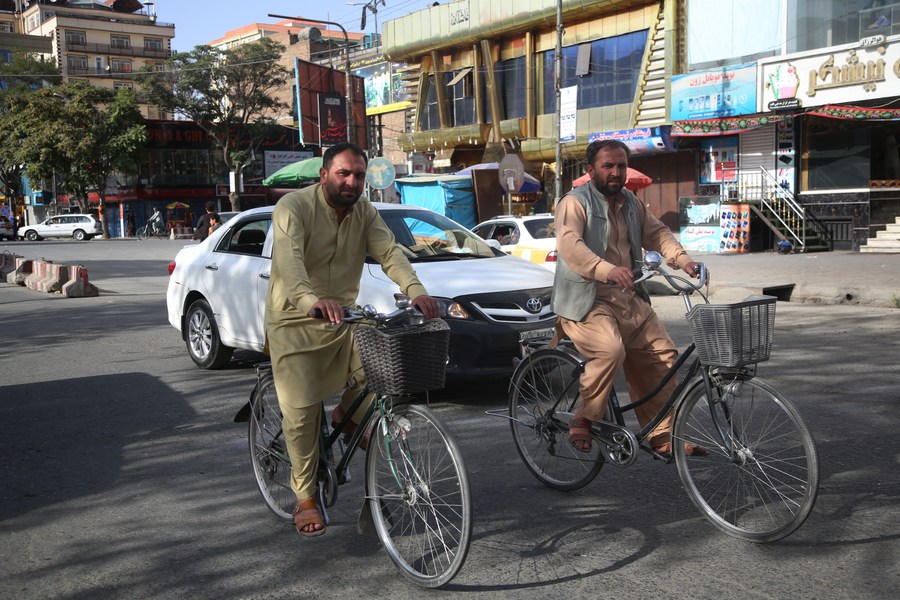
On the basis of fully respecting the will of all factions in the country, China has maintained contact and communication with the Afghan Taliban. On July 28, State Councilor and Foreign Minister Wang Yi met with a visiting delegation led by head of the Afghan Taliban’s political committee Mullah Abdul Ghani Baradar in Tianjin.
The Afghan Taliban has said on multiple occasions that it hopes to grow sound relations with China, looks forward to China’s participation in Afghanistan’s reconstruction and development and will never allow any force to use Afghan territory to engage in acts detrimental to China.
China welcomes those statements, stands ready to push for a soft landing of the Afghan issue so that a new civil war or humanitarian disaster will be prevented and the country will not relapse into a hotbed and shelter for terrorism.
China will continue to develop good-neighborliness and friendly cooperation with Afghanistan and play a constructive role in Afghanistan’s peace and reconstruction.
The author is an op-ed contributor to Beijing Review and an expert on international studies.
 Facebook
Facebook
 Twitter
Twitter
 Linkedin
Linkedin
 Google +
Google +










